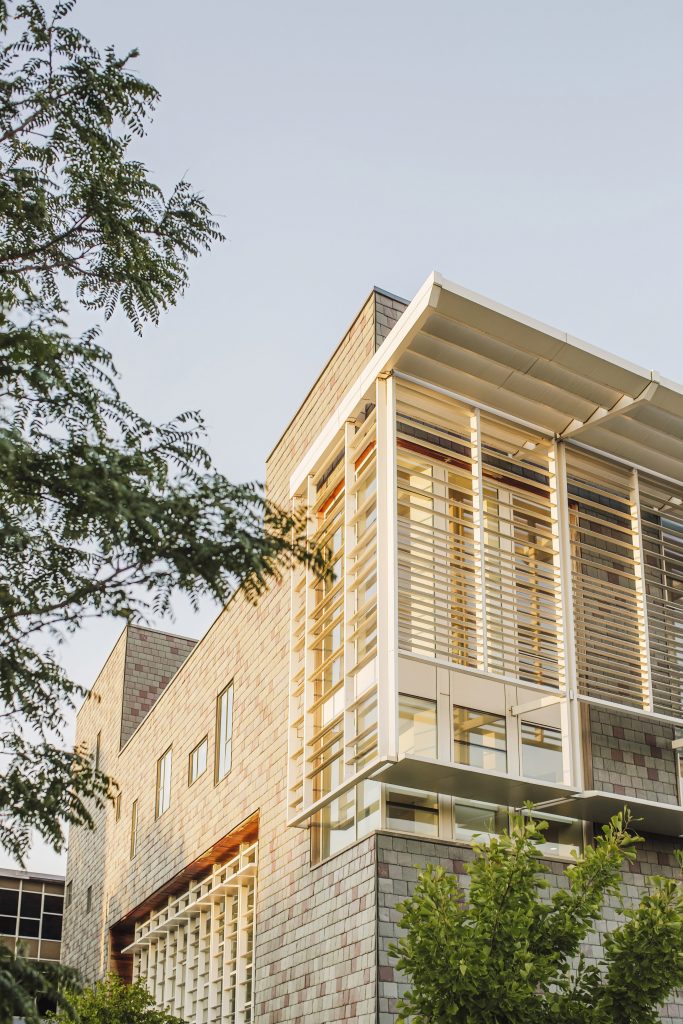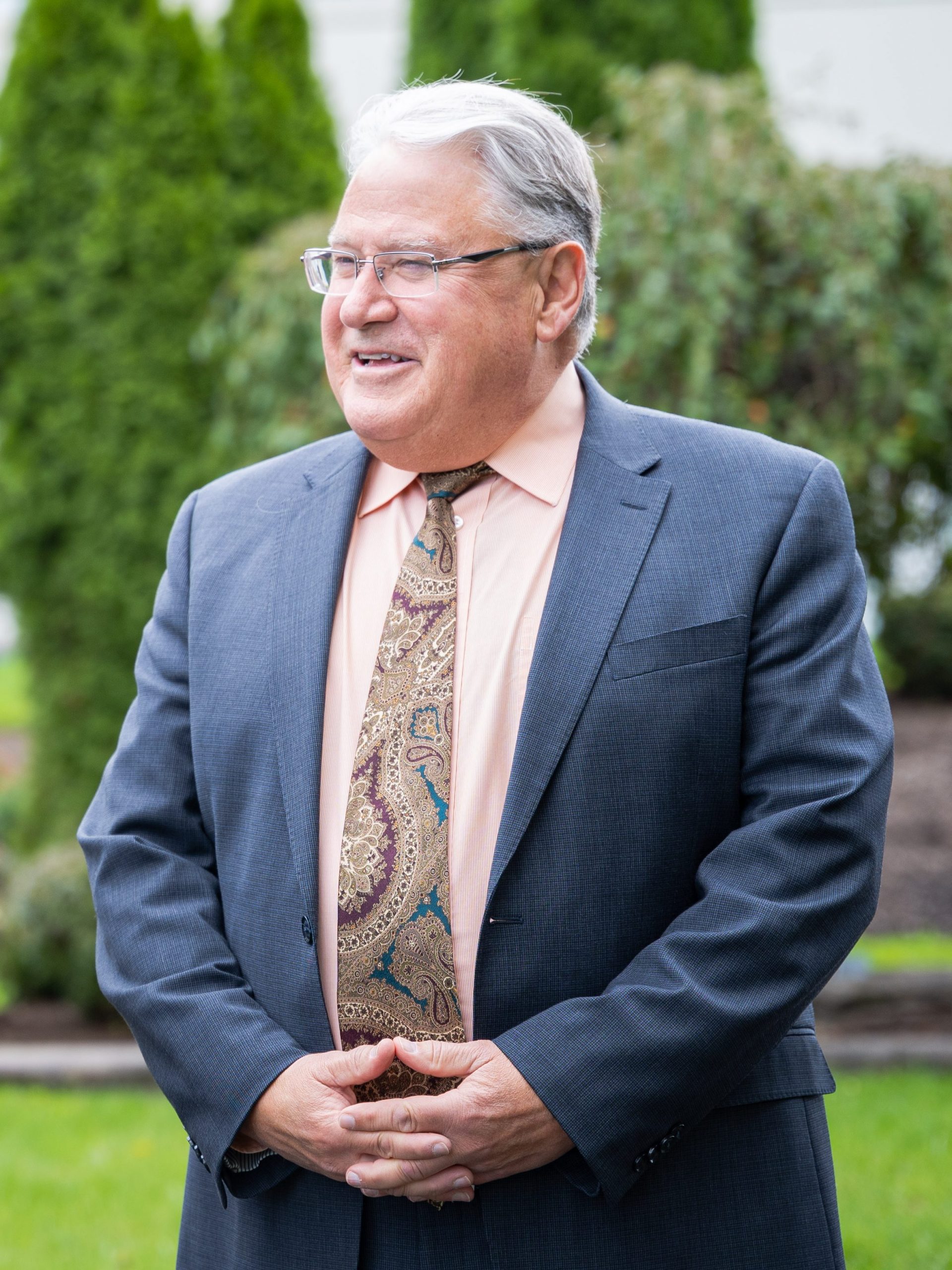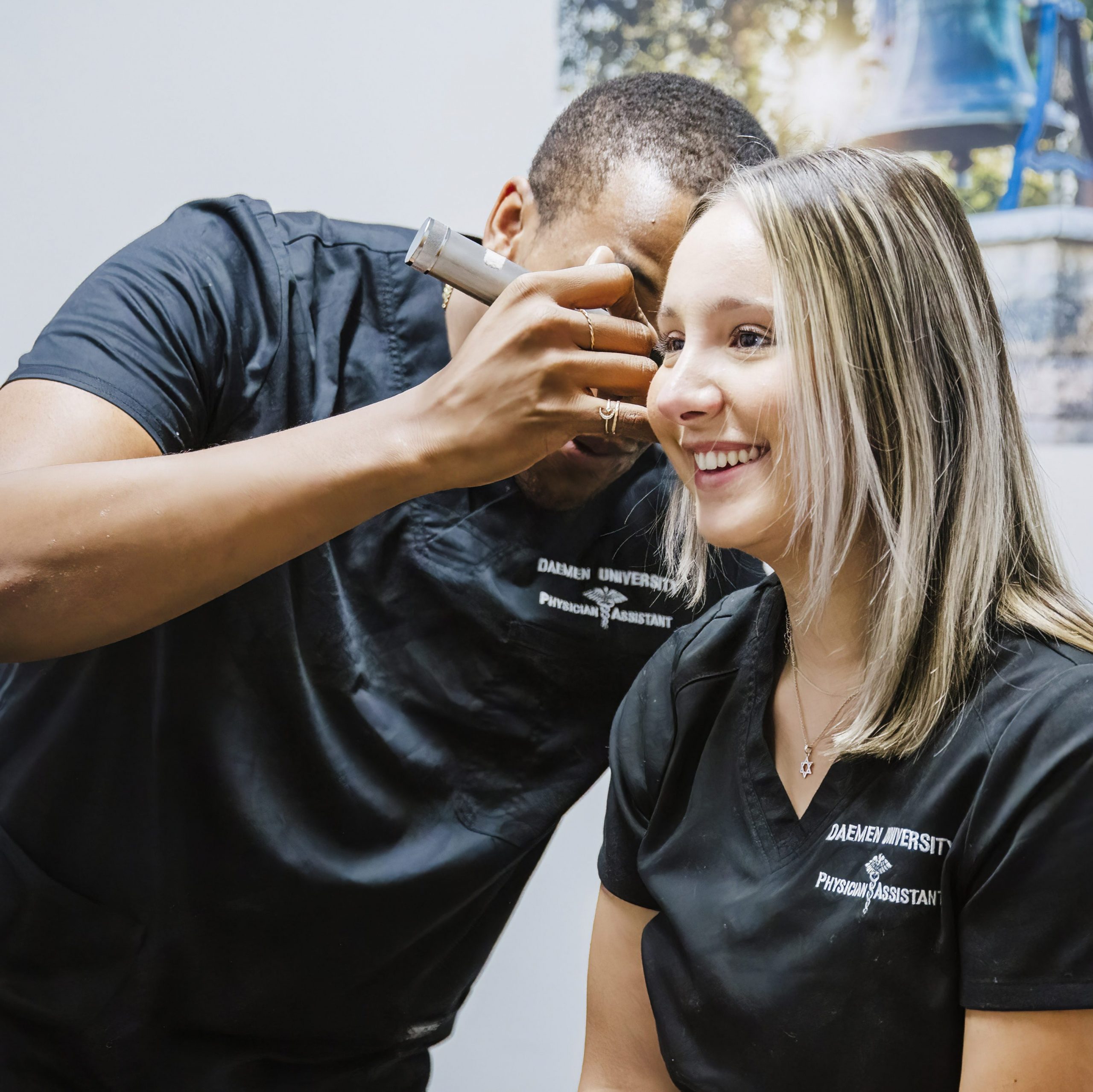Daemen College is now Daemen University – what that means and why it’s important.
Long before the New York State Education Department (NYSED) voted to change the definition of university, Daemen met much of the criteria for the designation.
The state’s amendment now requires a range of registered undergraduate and graduate curricula in the liberal arts and sciences. Those have long been in place at Daemen. The change also added that universities must offer graduate programs registered in at least three discipline areas such as education, health professions, and social sciences and include hands-on opportunities for research. Once again, Daemen checked off that box.
But achieving the official name did not happen overnight. In fact, Daemen’s rise to university status has been in the making for nearly 10 years, part of the strategic plan initiated by President Gary A. Olson when he took office. President Olson spent a good deal of time and effort lobbying the NYSED to vote on amending its definition of university, because it means much more than a simple name change.
Following is a look at what university status means for Daemen and the future of the school. From international enrollment to research grants to graduate programs, the newly renamed school is uniquely positioned for even more success as Daemen University.
Eye on enrollment
After achieving university status, Daemen created three academic units within the school: the College of Arts, Sciences, and Education; the College of Health Professions; and the College of Health, Human Sciences, and Business. A fourth academic unit, the College of Dentistry, is in the process of accreditation at the time of this writing, with approvals expected in 2024.
The formation of separate colleges is in keeping with a university model and better reflects the depth and breadth of Daemen’s academic offerings. According to Julie Zulewski, dean of enrollment management, the renaming and restructuring aligns with the school’s enrollment strategies, including the recruitment of international students for a diverse student body.
“For international students, the word college in a name is often associated with two-year, community schools or trade schools,” she explains. “That may have been a barrier to recruitment and enrollment, but now as Daemen University, student perceptions will change, and our marketing and communications will promote the university status.”
Zulewski notes the university status strengthens Daemen’s reputation as a college of national distinction, which in turn will aid in recruitment and enrollment initiatives. Research has shown colleges in the United States saw a near-immediate bump in enrollment when they transitioned to university status. Daemen’s goal is to build on such an increase, focused on the advantages of a well-rounded, career-focused university experience.
“Daemen offers the best of both worlds – university offerings in academics, graduate programs and research, with a more personal approach of a smaller campus community,” she concludes. “Daemen attracts students from around the world including Spain, South Africa, and many other countries. University status will help drive new enrollment initiatives, nationally and internationally.”
Supporting research
Daemen’s commitment to research has been a central part of the school’s mission for decades, well before university status. Students have hands-on research opportunities working with faculty and staff on all kinds of subject matter that can lead to publication in journals and online resources. And that can give the student a leg up in graduate school or their career field.
Furthermore, many of Daemen’s research projects benefit the community. For example, Daemen’s Center for Wound Healing Research performs research that aims to help those with chronic wounds. The upcoming Institute for Mobility Innovation & Technology (IMIT) will create the most comprehensive advanced rehab facility of its kind in the region, and result in research to help a wide range of people with mobility and walking challenges.
During any given school year, a variety of research projects are underway at Daemen – everything from fossils and sharks to deep tissue pressure injuries to the effects of olive oil on butterfly growth. But research is expensive and requires grant funding and collaboration to sustain projects that can span years. According to Dr. Laura Edsberg, director of Daemen’s Natural and Health Sciences Research Center, university status is going to make a big difference in accessing grants and generating more research opportunities.
“I’m thrilled with the university status because it changes the tone of discussion on everything we do in research, from applying for funding to collaborating with other universities on projects,” she explains. “It’s more difficult to promote collaboration with other universities when college is in your name, especially on the international stage. The Daemen University name will carry more weight.”
Dr. Edsberg notes that she and her staff work closely with Robin King, director of academic grants and sponsored programs at Daemen, on grant writing to fund such projects. Recently, their collaboration resulted in $2,250,000 in funding so far for IMIT from government and private foundation sources. King also helped secure grants and contracts from the U.S. Department of Defense for the Center for Wound Healing Research. She works with departments across campus to identify funding needs and helps them apply for funding resources.
“With the transition to university, there will be increased emphasis on research grants within Daemen academic departments, and the creation of new doctoral programs will drive additional advanced research,” King says.
“The new deans will also be responsible to promote faculty research grants and contribute to grant proposals. Our office is here to help put all the pieces of the puzzle together.”
Higher degrees
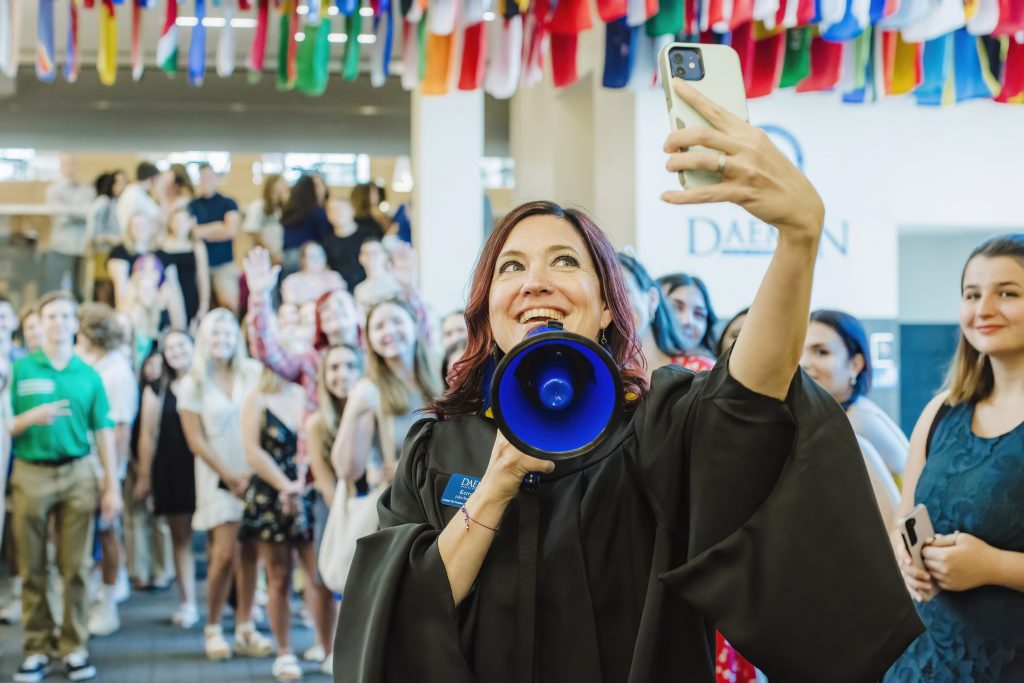
students, celebrates Convocation with a selfie.
Changes to the university definition by New York State now stipulate that a university must offer graduate programs registered in at least three discipline areas. Daemen currently offers graduate programs in more than a dozen discipline areas, from Business Administration, Education, and Nursing to Physician Assistant (PA), Physical Therapy (DPT), and Public Health. And there’s more to come.
Dr. Greg Ford, founding dean of the College of Health Professions at Daemen, says the school has really functioned as a university for a long time and now has official recognition with the definition changes made by the state. He was on the committee that oversaw the restructuring into three colleges, each of which has at least one graduate program.
“There is added prestige as a university and the designation presents more opportunities for growth in graduate programs,” says Dr. Ford, himself a Daemen graduate in 1995.
“Potential students will see us through the lens of a university, not college, and our robust curriculum – both undergraduate and graduate – sharpens that perspective.”
Dr. Ford notes that Daemen’s DPT program has been fully accredited since its first graduating class in 1977 and has remained at the forefront of changes in the profession including new technologies and medical advances. With the aging population in the U.S., forecasts from Bureau of Labor Statistics call for 18% growth in demand for physical therapists in the future. With that comes more competition.
Currently, there are about nine schools across the country in the process of becoming accredited for DPT programs. Daemen’s university status will aid in competing with such schools and remaining top of mind for potential students.
“The university designation is exciting and empowering as Daemen responds to a new era in higher education, adds Dr. Heather Maloney-Stassen, founding dean of the College of Arts, Sciences, and Education. “New majors, added research opportunities, and msore grant funding possibilities all strengthen Daemen University’s student-centered mission while enhancing its status internationally, nationally, and right here in the surrounding community.
Visit Daemen University online at daemen.edu for complete details on undergraduate and graduate programs, as well as the initiatives and developments that go into the making of a university.
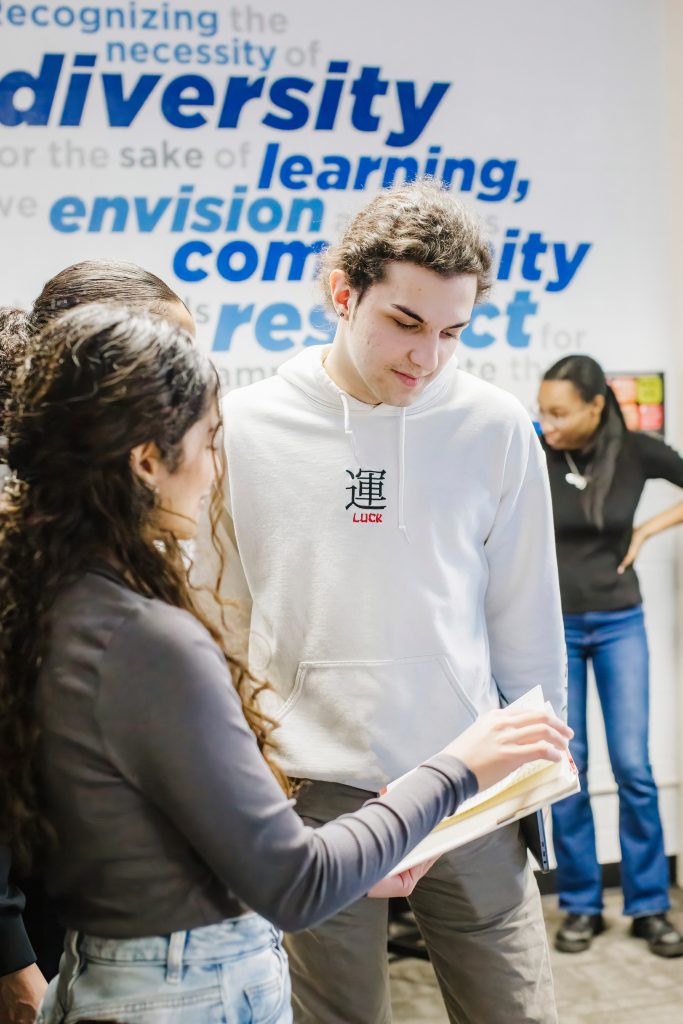
Students spend time reading in the Center for Diversity and Inclusion
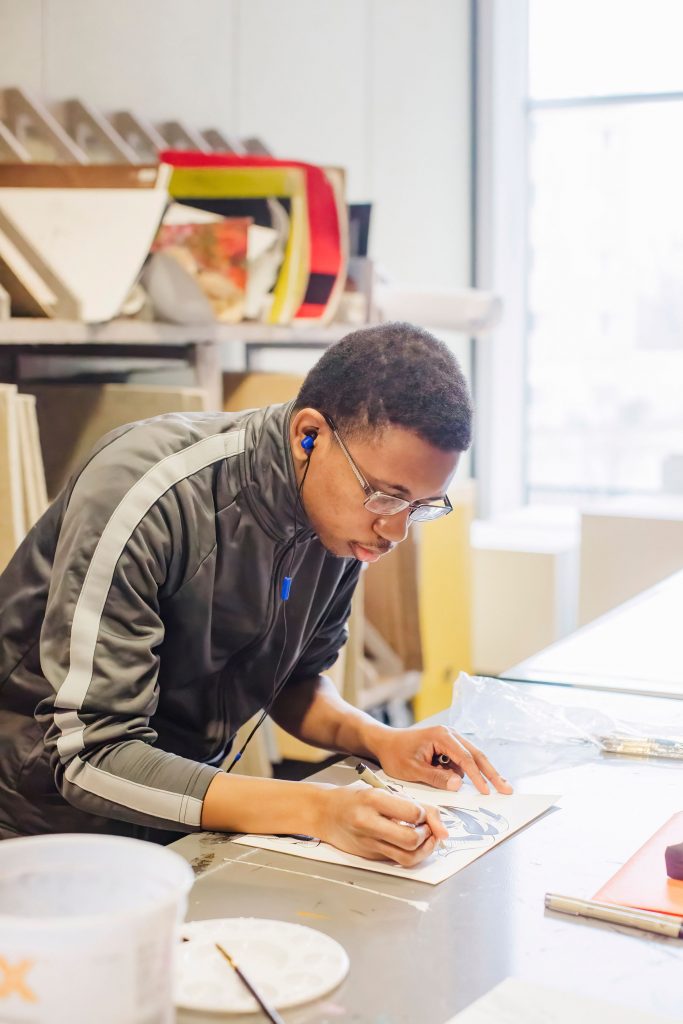
Art Student illustrates artwork in the Visual Performing Arts Center
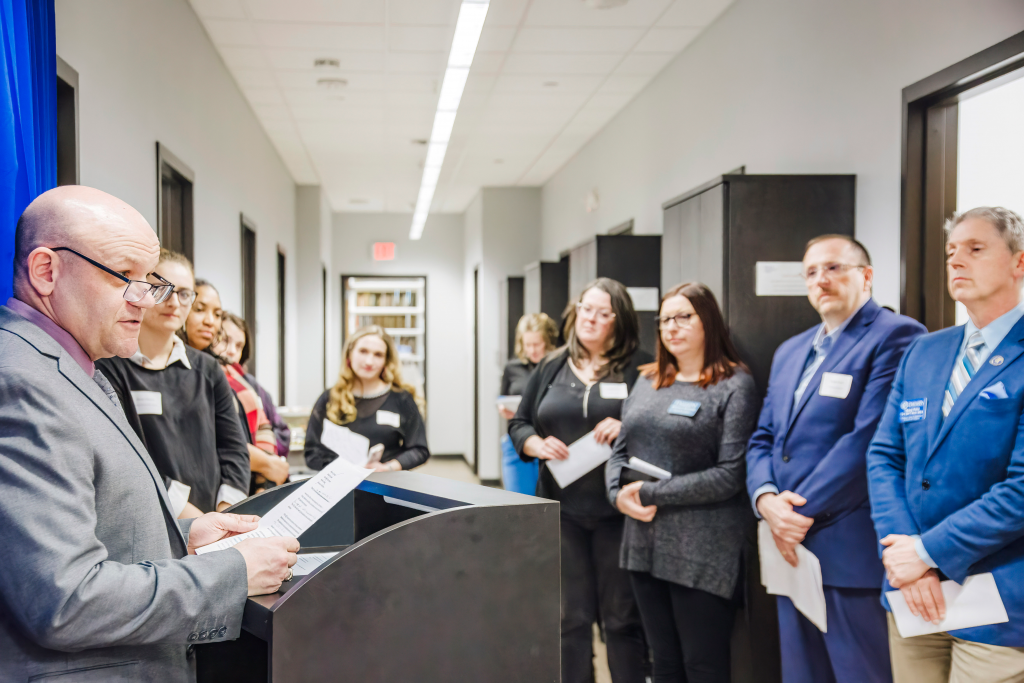
nthony Surace, CILS director, addresses attendees at the CILS
Open House



